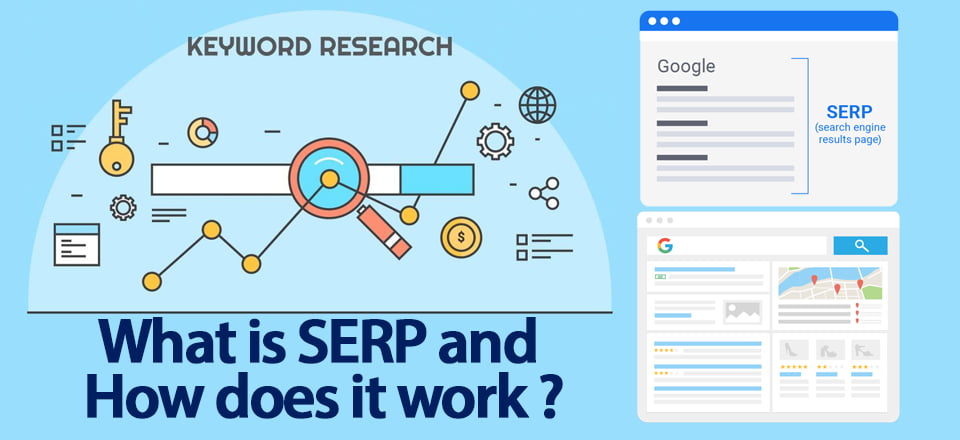If you have a website for your business that you either use as a sales platform or a platform to inform your audience, SEO marketing is one of the marketing strategies you need to take seriously. However, beyond SEO, you can take your online marketing to a different level through SERP analysis.
If you’ve been using SEO for a while and fully understand how it works, you may still need to continue to learn new ways to optimize it. The aim and objective for every website owner are to drive more customers to their websites, and there are two ways to go about it. It’s either you use PPC analysis tool or SEO marketing.
SEO marketing is a process of ranking higher on search engine pages for a specific keyword. If you are not on the first page of Google for a keyword, you are unlikely going to get enough customers as you wish. It’s why everyone wants to rank higher on Google, to be the first website that customers will click.
While PPC marketing is faster in driving traffic, SEO marketing helps you build authority in your niche, and that’s why no serious business owner can neglect it.
Our focus in this blog is to find out the SERP analysis tools for SEO and ranking. Continue reading to find out all you need to know.
![]()
What is SERP Analysis?
Beyond SEO, there is more to ranking higher on search engine pages. SERP (search engine result page) analysis is a process where you analyze the top-ranked websites for a specific topic or keyword. We use it to understand the level of difficulty of ranking on search engine platforms, especially Google.
There are various tools available for SERP analysis, and these tools provide recommendations based on the metric analysis between the top-ranked websites. The tools help to compare the top-ranked websites and find out why one ranks higher than the other. It’s a way of finding out the various factors that help a website page to r higher than another for a specific keyword.
Why Use SERP Analysis Tools?
Various advantages are attached to using SERP analysis tools, but the most important one is that you will improve your rank on search engine pages. However, let’s check out some of the reasons to use SERP analysis tools;
- They save you from excessive data analysis and Keyword research when you try to make a comparison between two websites.
- You will have access to insights about how you measure with your competitors, knowing how to achieve their ranks, and allowing you to move up the rank.
- The insights you generate will help you to tweak things around to help your rank. Once you find out what works for your competitors, all you need to do is execute it.
- SERP analysis helps you to find out the strengths and weaknesses of your competitors. It will help you even to perform better.
- It also allows you to analyze performance according to location, language, and region, depending on your preference.
- The SERP analysis tools also help to access metrics and insights without going through the stress of monitoring statistics manually.
SEO is not complete without knowing how well your competitors are performing. Taking advantage of the insights you generate from using SERP analysis tools helps you perform better, connecting you to the right customers.
Tools for SERP Analysis
Various tools are available for SERP Analysis, but we will only mention just a few of them in no particular order. They are all excellent, but some of them have their peculiarities. However, in all, it’s a matter of preference.
Let’s go through them below;
● SERP Checker
This tool helps you find out about your competitors using over 49 metrics, including competitive rank and SEO competition score. You will find out your competitors’ strengths and weaknesses. It allows you to see insights according to a mobile device, desktop, and location, including Cities, states, and countries, helping you find out specifically about local SEO.
● Ahrefs SERP analysis tool
Ahrefs functions as a keyword research tool, and it also allows you to do SERP analysis of more than one keyword at a time. It gives you the SEO analysis of the top-ranked pages for your Keyword and gives Keyword research and analysis variations and suggestions. It helps to analyze keywords. Another peculiar function of this tool is that it is quick, powerful, and convenient.
● Moz SERP analysis tool
This tool will show you keyword difficulty, telling you how difficult it could be to rank on page one for a specific keyword. The higher the keyword difficulty, the harder it becomes to rank for that keyword. It will do you good to use some other keywords if you find out that the keyword difficulty of a specific keyword is too high. The tool also estimates the click-through rate and shows you the competitors’ page authority.
● SEOQuake SERP analysis tool
The first thing to understand about this tool is that you can implement it as a toolbox for browsers. It means you can conveniently use it while searching for keywords on search engines. It helps you to get the tricks that will surge you ahead of your competitors. It is peculiar for giving information about social stats, internal and external links, and page ranking. It also helps to compare the stats of URLs and domains and gives Alexa ranks of websites.
● Google Keyword Planner tool
Google Keyword Planner tool is primarily for discovering new Keyword ideas, giving you insights into how a keyword performs. However, we can also use it for SERP analysis. Google Keyword Planner helps you find out how your competitors rank for a specific keyword. You will find out if a keyword has low or high competition. It proffers a solution to the keyword that will work perfectly for use. Google Keyword Planner also gives insights about specific locations, especially if your business is location-oriented.
Conclusion
In online marketing, there is always an avenue to improve. Doing SEO marketing goes beyond using the right keywords on your website.
One of the best ways to quickly scale up on search engine pages is to find out what your competitors are doing better than you. It is the stage where SERP analysis comes in.
SERP (search engine result page) analysis gives you insights into why one website ranks higher than the other on search engine pages. It’s that simple and straightforward.
If you are yet to read this blog in full, read it to find out all you need to know.

